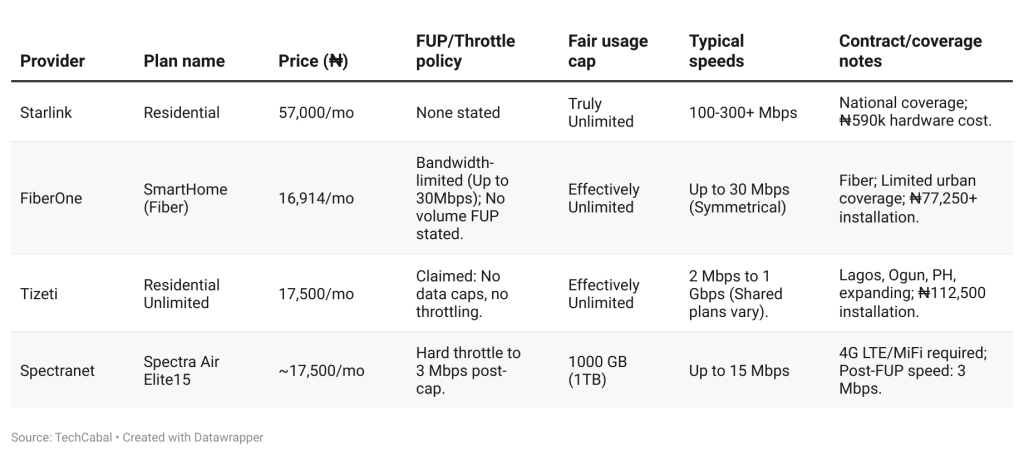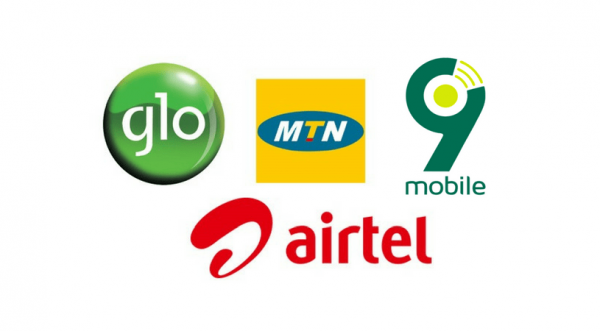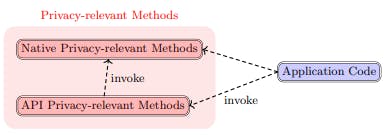Data prices in Nigeria rose in 2025 after the Nigerian Communications Commission (NCC) approved new tariff adjustments. Telecom operators had long pushed for the change, citing rising costs of power, equipment, repairs, and foreign exchange. Since then, many networks have reduced the mobile data volume in their bundles, making it more important than ever to choose plans that last, load fast, and stay stable. This guide breaks down the best daily, weekly, monthly, and unlimited data plans in Nigeria right now.
Daily data plans
Daily data plans are helpful when your monthly bundle finishes early or when you only need data for a short period. The primary consideration is the amount of data you receive for the amount you pay. Some daily plans may seem affordable at first, but the data usage is often depleted almost immediately.
Airtel currently has one of the best daily options with its Binge Plan. The ₦400 Binge package provides 1.5GB of data for 24 hours, making it ideal for those who need to stream or download content quickly. The cost per GB is fair, and Airtel often performs well for video and social media use. “I use the Airtel Binge plan when I need to watch lectures online quickly. It saves me when my monthly data finishes,” says Ada, a nursing student at Unilag.
Glo has lower entry prices, but the data is small compared to what heavy users need. For example, the ₦100 daily plan provides 125MB, which is sufficient only for browsing and messaging. It does not support streaming for most people.
If you are in a major city, Smile can be stable. You can get 1GB for around ₦450, and the speed is usually steady for work and video calls in areas where Smile coverage is strong.
Daily plans work best when you only need to top up quickly. If you use mobile data heavily every day, a weekly or monthly bundle will give you better value.
Best daily data plans
Weekly data plans
Weekly data plans are a good option if you need steady internet for school, work, or social use, but you do not want to commit to a full monthly plan. With a seven-day validity, they usually offer better value than daily bundles.
One of the most affordable weekly data plans in Nigeria right now is from 9mobile. The 7GB weekly plan for ₦1,500 offers substantial value if you live in an area with stable 9mobile coverage. It works well for social media and light streaming, although coverage strength varies by location.
“In my area, the 9mobile weekly plan is the best price I can get. As long as I stay around home, it works fine,” says Oyin, a tailoring apprentice in Ibadan.
If you prefer something more reliable, Airtel’s 7GB weekly plan for ₦2,000 is a better fit. It costs a bit more, but Airtel performs well in many cities. The connection is steady, and the data lasts longer when the network speed is consistent. Chima, a remote support agent in Abuja, puts it simply: “I pay the extra for Airtel because I cannot afford network issues during work calls.”
Glo also offers weekly plans, but the data value is lower in most cases. These plans can work well if you live in an area with strong Glo coverage, although they do not offer the same balance of price and performance as 9mobile or Airtel.
Weekly plans are helpful when you want to manage your spending while staying connected through schooling, short work cycles, or travel.
Best weekly data plans
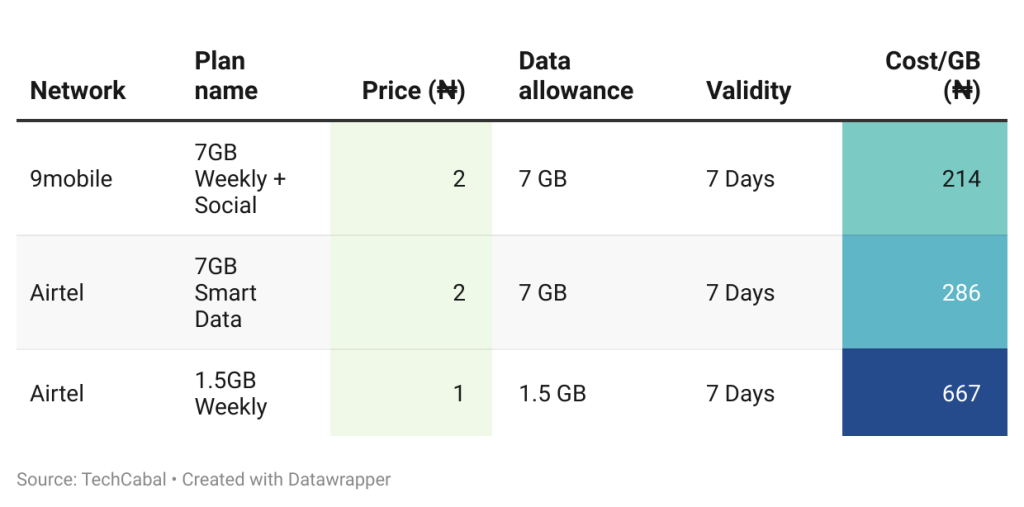
Monthly data plans
Monthly data plans typically offer the best value for money. Most people use this bundler for work, streaming, browsing, and calls over apps. The key is balancing price, speed, and the stability of the network in your area.
Glo offers some of the cheapest monthly plans. For example, the 30GB plan for ₦5,000 looks attractive if you want a large amount of data at a low price. The challenge is speed. Many users report that downloads and streaming can be slow in areas with high traffic. Glo works best if your location has strong Glo coverage and you use the data for simple browsing or background downloads.
“Glo is affordable, but I only enjoy it when I am at home. Once I move across town, the speed changes,” says Fisayo, a pharmacy student in Akure.
MTN costs more, but the network is usually more stable. A popular option is the 45GB plan for ₦9,000. It gives consistent speeds for video calls, work, and streaming. If your job depends on internet uptime, MTN tends to be the safer choice. You pay more, but you avoid frustration.
“I use MTN for work because I cannot risk call drops during support sessions,” said Kemi, a customer care rep. “ The stability is worth the extra cost.”
Structured monthly plans are becoming common. These are plans that spread your data across the month, so you do not finish everything at once. Airtel’s Everyday ON plan does this by giving a fixed amount of mobile data each day. This is useful if you want a predictable routine and want to avoid running out halfway through the month.
For heavy users who frequently move around, Smile offers large bundles with consistent speeds in areas where Smile is available. If you rely on mobile data instead of home Wi-Fi, this can be a strong option.
When choosing a monthly plan, think about your location first, then your budget. A cheaper plan is only valid if the network is steady where you live and work.
Best monthly data plans
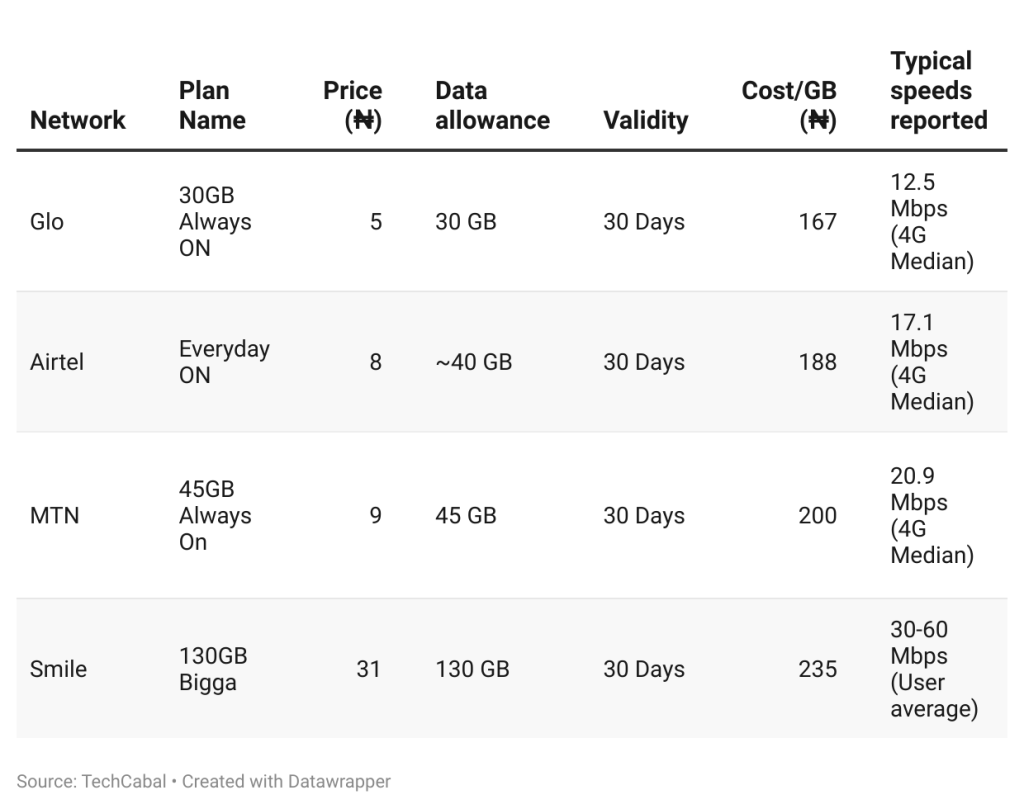
Unlimited data plans
Unlimited mobile data plans matter when you need steady internet without worrying about running out. The key thing to understand is that not all unlimited plans are actually unlimited. Some providers allow heavy usage, but slow your speed after you pass a certain amount. Others give you full access without limits, but the setup cost can be high.
FiberOne offers one of the strongest unlimited home internet options in places where fibre is available. The SmartHome Lite plan provides fast speeds and does not publicly state any usage cap. If you work from home or frequently stream content, this type of connection provides a stable experience.
The primary cost is installation, which can seem expensive upfront. “I paid a lot for installation, but after that I stopped worrying about data completely,” says Michael, a software tester in Lekki.
Tizeti also offers unlimited home Wi-Fi at a similar monthly price. It is a good choice in areas where Tizeti has strong coverage. Their service is focused on unlimited browsing without slowing your speed as long as your connection stays stable. Installation is also the main cost here.
Joy, a Port Harcourt resident, said, “Tizeti made sense for me because I watch movies every night. Once it’s installed, you just pay monthly and it runs.”
Providers like Spectranet use a different model. They advertise unlimited, but there is usually a limit where your speed drops once you pass a high data threshold. These plans still work well if you do regular browsing and streaming, but they are not ideal for constant, heavy downloads.
For users who need strong coverage in rural or low-signal areas, Starlink is the premium option. It offers high speeds and truly unlimited data. The monthly cost is high, and the hardware is expensive, but it effectively addresses the problem of poor network coverage better than any other provider.
Choosing an unlimited plan comes down to two things: location and budget. If fibre is available in your area, FiberOne or Tizeti offers substantial value. If you move frequently or live in an area where fibre has not yet reached, Spectranet or Starlink may be a better fit for your situation.
Unlimited data plans
